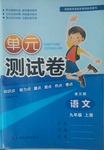题目内容
16.

Did you know the meaning of a word may change over time?Many English words we know now had different meanings a long time ago.One example is the word nice.Around the year l 300,nice was first used in English to mean"stupid".Two hundred years later,nice began to carry a"better"meaning.If people said a book was written nicely,they meant the book was written"clearly"or"carefully",not"stupidly".After l800,nice began to take its meaning like"kind"or"friendly".Since then,people have thought of nice as a word with good meanings.
A good change of a word's meaning like this example of nice is called AMELIORATION.Though we don't use nice to mean"stupid"any more,it is fun to know how much a word's meaning can change from its start!
*For more examples of AMELIORATION,see next page.
46.1300years ago,a"nice person"was believed to beC.
A.careful B.friendly C.foolish D.clever
47.What is the second paragraph mainly about?D
A.What nice used to mean.
B.Why the meaning of nice changed.
C.How long nice has been used?
D.How the meaning of nice changed over time.
48.AMELIORATION means a word's meaningB
A.can change from its start
B.changes from bad to good
C.changes from good to bad
D.remains the same over a long time
49.Which of the following is most likely to appear on the next page?A
A.The word terrific used to mean"terrible",but now it means"excellent".
B.The word silly used to mean"happy",but now it means"stupid".
C.You may wonder why a word's meaning changes over time.
D.Besides AMELl0RATION,a word's meaning may change in other ways.
分析 这篇文章来自网络,介绍了nice的意义经历的年代变迁,那时nice的意义为foolish.
解答 CDBA 46.C 细节理解题.根据时间状语1300年左右,找到第二段第一句话,可知那时nice的意义为foolish.
47.D 段落大意题.短文第二段的主旨是陈述单词nice的意义经历的年代变迁.故选D.
48.B 细节理解题.短文第三段第一句话A good change of a word's meaning…说明画线单词的意义是从贬义向褒义转化.故选B,changes from bad to good.
49.A 综合判断题.由短文最后For more examples of AMELIORATION,"要了解更多从贬义转换到褒义的单词例子",可以推断下页的内容.四个答案中只有A选项体现了这种变化.
点评 阅读理解题测试考生在阅读基础上的逻辑推理能力,要求考生根据文章所述事件的逻辑关系,对未说明的趋势或结局作出合理的推断;或根据作者所阐述的观点理论,对文章未涉及的现象、事例给以解释.考生首先要仔细阅读短文,完整了解信息,准确把握作者观点.

练习册系列答案
 阳光试卷单元测试卷系列答案
阳光试卷单元测试卷系列答案
相关题目
6.-Where does your little daughter want to go during her holiday?
-She is always looking forward to _____ to the Wu Yi Mountain.( )
-She is always looking forward to _____ to the Wu Yi Mountain.( )
| A. | take | B. | taking | C. | being taken | D. | be taken |